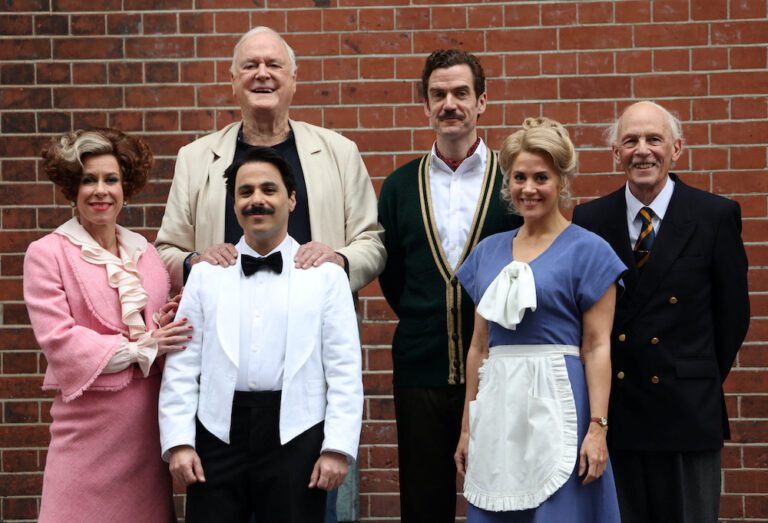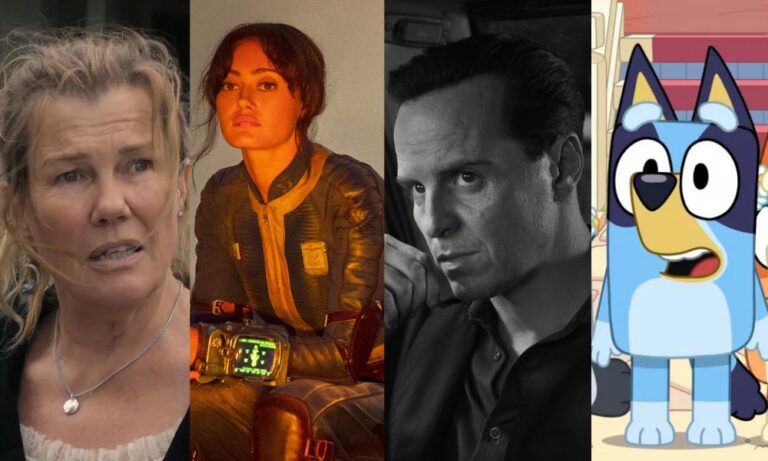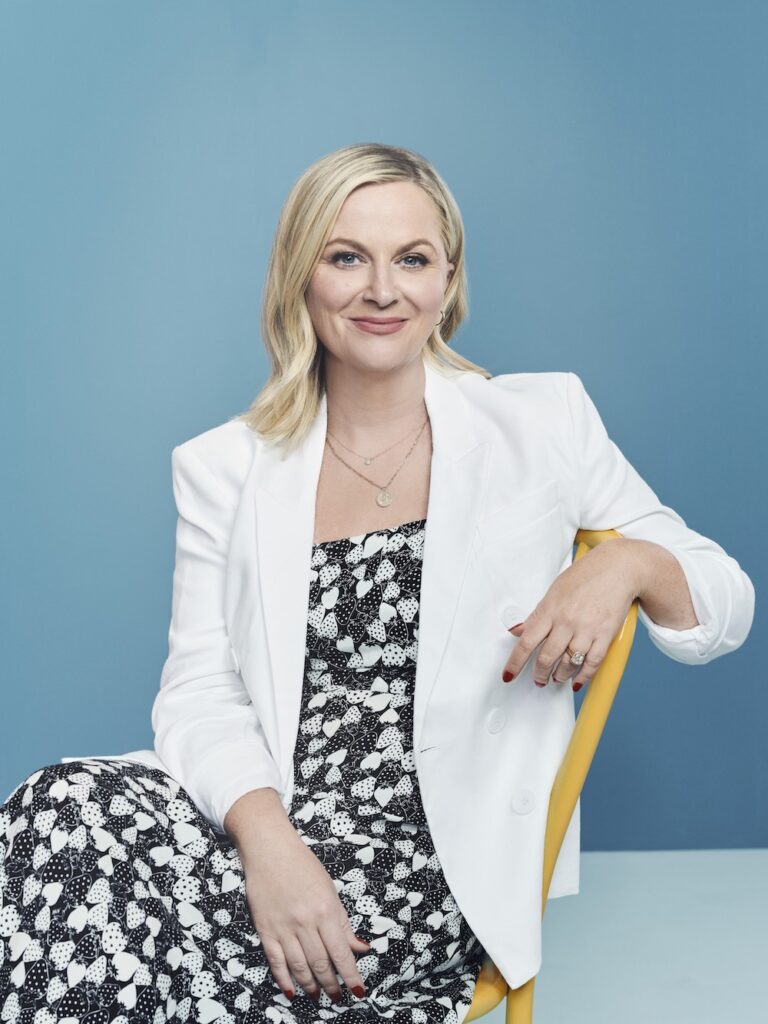Take a journey into the extraordinary lives of sisters whose destinies diverged dramatically. In this series, Michele Manelis delves into the contrasting paths of Olivia and Rona Newton-John – one ascending to the pinnacle of international fame, while the other grapples with personal demons and despair.
Stay tuned as Manelis unravels the tale of triumph and tragedy that unfolds between the sisters, showcasing their resilience, sacrifices, and the bonds that tie them together amid life’s twists and turns.
PART I
Rona Newton-John stands at the kitchen stove stirring the chicken soup she’s made from scratch for her fiancé Jeff Conaway (Kenickie in Grease and Bobby Wheeler in sitcom Taxi), while her youngest son, Emerson, 10 years old, rides his bike in the yard. Jeff’s affliction with drugs and alcohol meant his bouts of rage were nothing unusual for Rona and Emerson. But this day was different. With a gun thrust at the back of her head, Jeff screams, “Call Olivia! Tell her you hate her! Tell her you never want to speak to her again!”
Meanwhile, Emerson is blissfully unaware of the escalating crime scene taking place inside his home. Suddenly, the back door flies open — Rona grabs him, and running for her life, heads to the car.
That scenario was just one of many distressing and traumatic experiences which Emerson, now 49, endured. “It was probably the most significant memory of growing up with my mother,” he recalls. Smiling, he notes, “What comes to mind is when my mom had fled the house carrying me over her shoulder, I was mostly concerned that my bike wouldn’t fit in the car on the way to Olivia’s place, where I knew we’d be living again for a while.” Triggered by a healthy self-preservation impulse, it’s understandable that Emerson’s immediate concerns as a 10 year old would eclipse the drama and confusion of the incident which led up to their hasty departure from their home and subsequent arrival on the doorstep of Rona’s younger sister Olivia.
Sadly, this was a familiar pattern that the young boy would come to regard as normal. Anyone who has been close to an addict knows well the predictable cycle of chaos, violence, remorse and guilt, accompanied by their countless empty promises that the behaviour will never happen again. Emerson is far from alone as a child growing up in such circumstances. But most children don’t have an international superstar like his aunt Olivia Newton-John to rescue them. And rescue them she did, repeatedly.
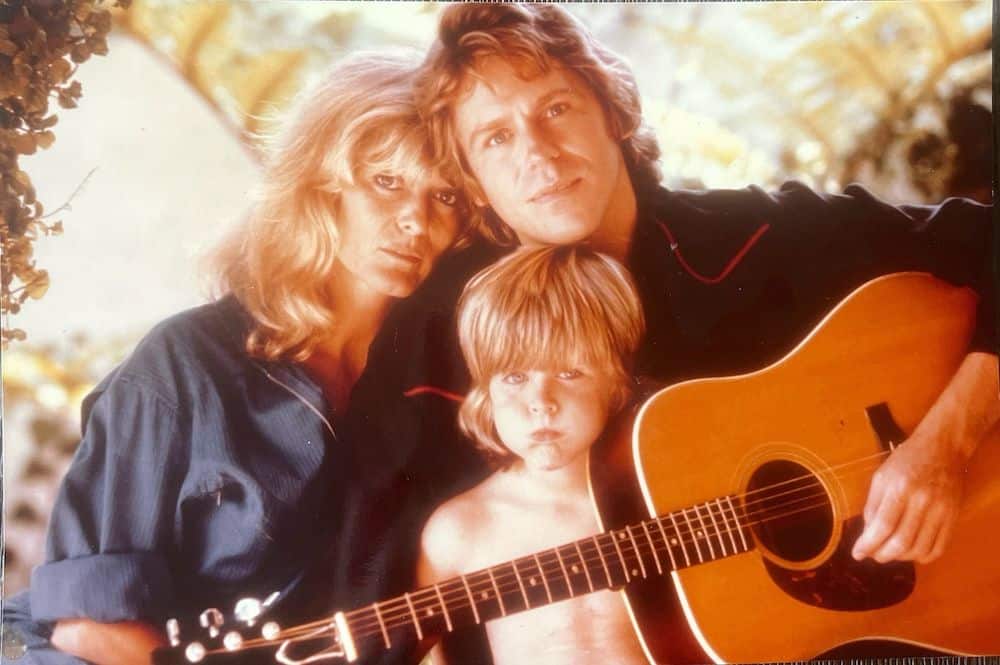
The Newton-Johns originally hailed from Cambridge, England. Rona, the middle child, was sandwiched between older brother Hugh, and Olivia, seven years younger. Talk to anyone who grew up with a sibling and there’s always a story; rivalry, jealousy and, more often than not, one sibling insisting they were handed the short end of the stick. Rona, an aspiring singer, actress, model, and muse to iconic fashion photographer Helmut Newton, felt usurped by Olivia, who could do no wrong in their parents’ eyes, and this created fertile ground for a complicated relationship. Rona’s life of calamity and trauma, which propelled her descent into hell, was the polar opposite of Olivia’s, with her rapid rise to global fame and success.
Emerson sits on the patio of his Arizona home, sipping coffee. “As much as Rona and Olivia loved each other, had a close relationship and would have done anything for each other, there was resentment, definitely, and on a lot of levels,” he nods. “It wasn’t just the way in which their parents treated Olivia in comparison to Rona, but it was no secret that my mom also had aspirations to be a star, whether it was as an actress or a singer, or both. And I think she could have been. I don’t think Olivia was any more talented than her, but one got that lucky break and one didn’t.” He pauses. “That’s a tough pill to swallow.”
Emerson, whose own career as a race-car driver has taken him all over the globe, admits, “If I had a brother who wanted to be a race-car driver and I had already been building my career as a driver and then my brother comes out of nowhere, seven years younger, and becomes an overnight sensation at 16 or 17, that would be really difficult.”
While Emerson was dealing with a litany of catastrophic decisions his mother would make on their behalf in England, on the other side of the globe, in Melbourne, his three half-siblings Fiona, Brett and Tottie Goldsmith (born Caroline) were dealing with a situation even more extreme. Rona’s children from her marriage to Brian Goldsmith, a well-known club promoter in Melbourne, were growing up without their mother at all, as she had deserted them years before to pursue a relationship with Emerson’s father Graeme Fifield-Hall.
To comprehend what made Rona tick as an adult, one needs to consider Rona, the child. “She had a weird relationship with her mother. There was a lot of animosity because when Olivia was born, the focus was on her and taken away from Rona. I think Mom harboured that feeling until the day her mother, Irene, died [in 2003].” He pauses. “Irene was just more interested in Olivia, even at the end of her life. And even though it was always that way, with Rona being pushed to the side, when Olivia became a star it became more obvious. My mom was always hurt about that. It really f***ed her up,” he says. “But Rona never blamed Olivia.”
More tragically for Rona, she was repeatedly molested, aged only seven, by the caretaker of the building in Cambridge where the family was living. He would take her to the basement and have her stand on a stool where he gave instructions. Naturally, this experience would have a devastating effect on her for the rest of her life, and, like most kids in similar circumstances, she was too ashamed to tell her parents.
“It impacted her immensely,” Emerson notes. “It shaped who she was in terms of her sexuality and the kind of relationship she had with men; obviously it did. As creepy as this is to say, I do know this to be a fact — my mom was an oversexed person.” He shrugs. “There’s no right or wrong with that, but compared to a ‘normal’ mom, I noticed that my mom was wilder in that department than probably my friends’ mothers. And I figured that out pretty young, in my early teens. I was, like, ‘Whoa, my mom is a little bit different in this regard!’”
How did Olivia feel about her big sister’s overt sexuality?
“Olivia didn’t really get involved with personal things like that. She wouldn’t have felt she had the right to comment on it and she would have never brought that up, especially in any negative way. Olivia liked to keep the peace with everyone,” he says, glancing upwards, “even if the peace shouldn’t have been kept.”
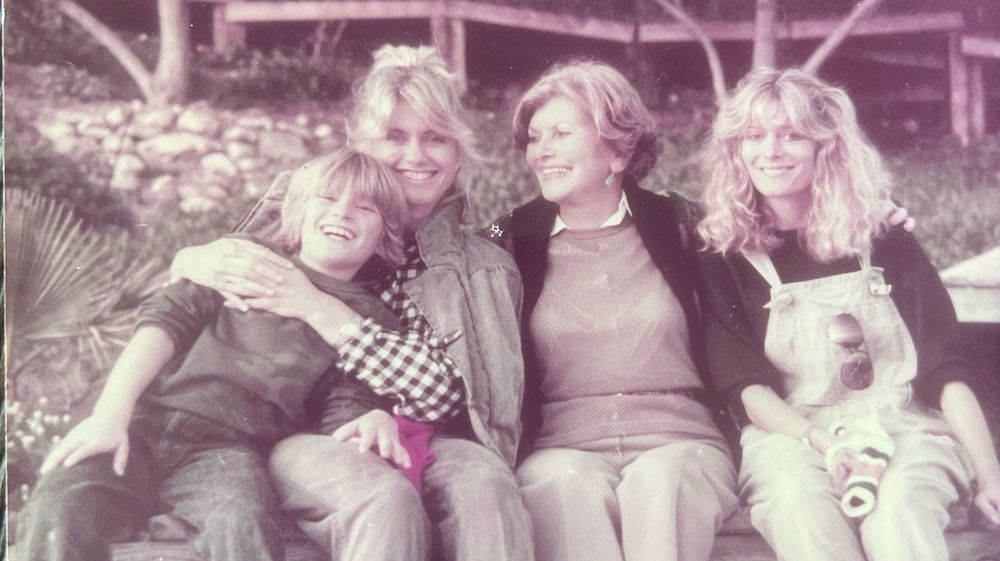
In 1954, the family emigrated to Melbourne. After arriving by boat following a six-week journey, the girls were enrolled in Melbourne Church of England Grammar School and Hugh at Christ Church Grammar School. But Rona’s rebellious behaviour and penchant for wearing her skirts too short soon led to her expulsion. Then at only 15, she fell pregnant to her first boyfriend. Her father Brinley arranged an abortion, and promptly pushed her onto a ship with her mother headed for Germany to visit her grandparents.
The Newton-Johns were a celebrated academic family. Irene’s physicist father Max Born won the Nobel Prize in physics for his contributions to the field of quantum mechanics, and his colleagues included such luminaries as Albert Einstein (with whom he enjoyed a friendship for more than four decades) and Robert Oppenheimer (subject of the eponymously titled Oscar-winning film). “Einstein would come to the house and play violin with Max, who would accompany him on piano.”
Rona and Olivia’s German-born grandparents were Jews who escaped the Nazis and fled to England. In 1937, Irene married Welsh-born Brinley Newton-John. He was an MI5 officer who worked on the Enigma project (the Nazis’ Enigma machine was a field unit employed to encrypt their communications using a code that was famously cracked by British cryptologists), and, upon relocating to Australia, took a post as Master of Ormond College at Melbourne University in 1953.
Though the family is of partly Jewish descent, the Newton-Johns were atheists. “There was no religious belief in sight in my family. Rona and Olivia were spiritual in that they took a little bit of everything and rolled it into their beliefs. Their father was an atheist. Coming from a Nobel Prize-winning father, that’s par for the course, regardless of your lineage.” Interestingly, in Olivia’s 2019 biography, she states, “My mother was proud of her Jewish heritage and talked about it a lot.”
During Rona’s trip to Germany with her mother, it was decided she would relocate to London to begin a career in modelling, and she was signed to a top agency. She was 16 years old and up for adventure. While she was living in hostels and securing modelling jobs all over Europe, back in Melbourne, 11-year-old Olivia, playing with Barbie dolls at home, felt abandoned by her big sister.
Trouble always seemed to find Rona. “In London, she fell in with the wrong crowd, like the infamous gangster Michael Carbon-Waterfield aka Dandy Kim (best known for setting up the first Ann Summers sex shop in Great Britain). When her father read in a London newspaper about her gallivanting with men from the wrong side of the tracks, he insisted she return home,” explains Emerson. “Rona was very self-aware; she knew who she was. She was the quintessential naughty schoolgirl and she played on it her whole life.” By contrast, Olivia was the ‘good girl’.
“Those two had numerous arguments about that, even up until a few years before my mom died. She would call Olivia ‘Pollyanna’ all the time and Olivia hated it, absolutely hated it,” he chuckles. “Rona and Olivia didn’t really stray too far from those polar opposite personas their entire lives. Olivia, the goody-two-shoes Snow White, and Rona, the naughty schoolgirl who had a lot more fun than her sister.” He pauses. “Rona knew she wasn’t a good role model for Olivia, when they were young, but she also said that even if she wanted to steer her away from the straight-and-narrow, it’d be impossible. Livvy would get one guy and that would be everything to her. No amount of temptation would make her stray.”
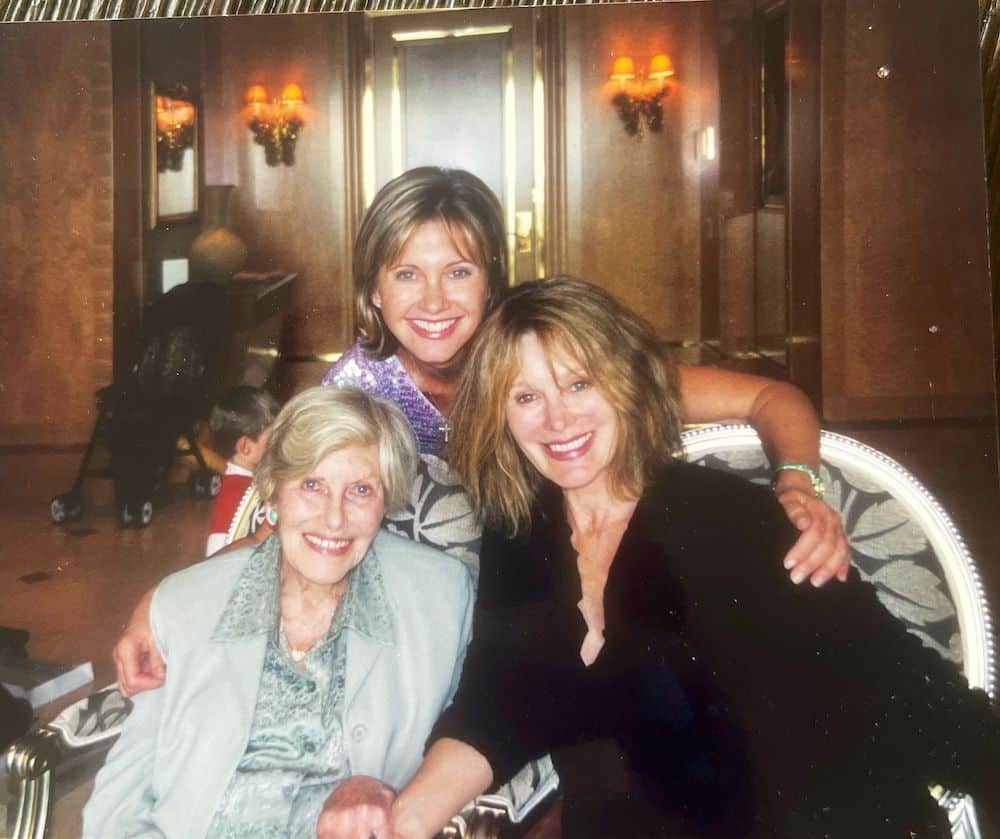
In the late 1950s Rona moved to Sydney, where she enjoyed a short stint in theatre, starring in productions including Dear Delinquent, opposite New Zealand actor Guy Doleman (Thunderball, Alfie). He was 34 and married; she was 16. Doleman was the first of many abusive, alcoholic men with whom she would find herself romantically entangled. Meanwhile, back in Melbourne, her parents had split up due to her father’s infidelity. Olivia stood resolutely by their mother, who grew ever more depressed. Living on college campus, their brother Hugh was spared much of the drama.
On New Year’s Eve, 1960, in Melbourne, 16-year-old Rona met Brian Goldsmith, 27. “She went home with him in the early hours of New Year’s Day,” Emerson says. “Almost exactly 12 months later, she married Brian and gave birth to her first child, Fiona. Then in quick succession came Brett and Caroline (Tottie). I think she found married life and motherhood stifling, but you have to remember that she was very young herself, still in her early 20s.
“It was a dark period for her,” he continues. “She felt very trapped. Her life had taken a very different turn from what she’d planned. Although I never heard anything positive from her about that time in Melbourne, to be honest with you, I hate saying that because I don’t want anyone involved feeling that she wasn’t happy to be a mother. I just didn’t get that warm and fuzzy feeling from her any time it was brought up — and it was brought up a lot.”
Despite her jealousy towards Olivia, it was Rona who suggested her younger sibling perform in one of Brian’s clubs. By doing so, she inadvertently played a huge role in propelling her sister’s career forward. Is this partly why Olivia repeatedly came to Rona’s rescue?
“Yeah, for sure, I think Olivia felt that. As far as Rona helping her, I think she got to a place where she was trapped. Her career as a model, after three kids in a row, was probably going to take a bit to rekindle, if it were even possible, and she was of the idea that the second-best thing was to help her sister who she loved a lot.” He smiles. “My mom wasn’t dumb.”
Check in tomorrow for Part II. It’s the Swinging 60s, and Rona heads for London, where she finds a new life, a new marriage, and another baby on the way. Meanwhile Olivia, who also finds love, is enjoying the ride of her life in an unstoppable career which sees her winning awards and setting a new Guinness World Record.



